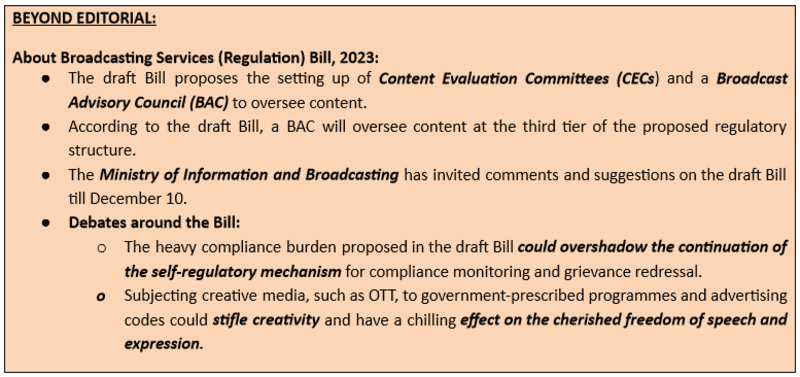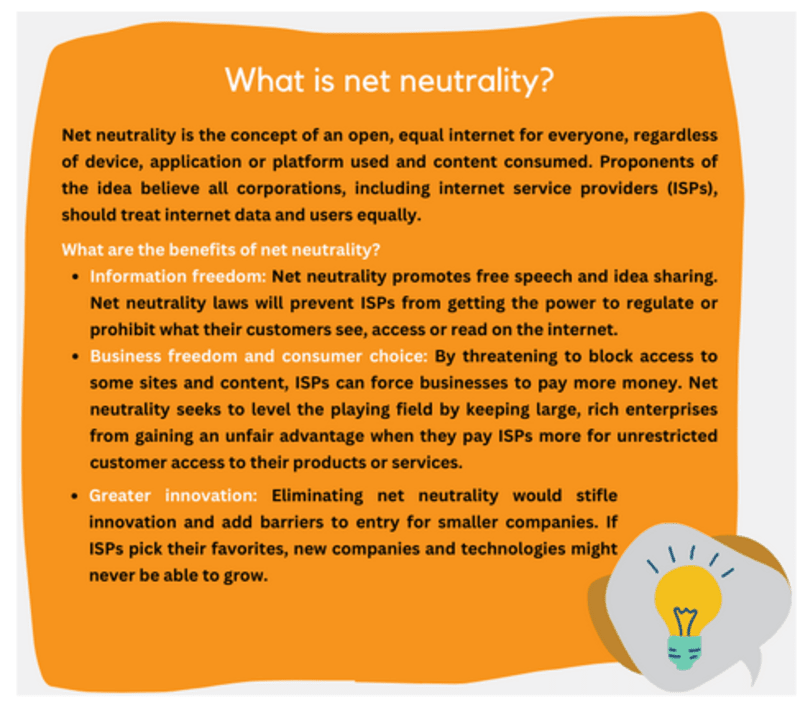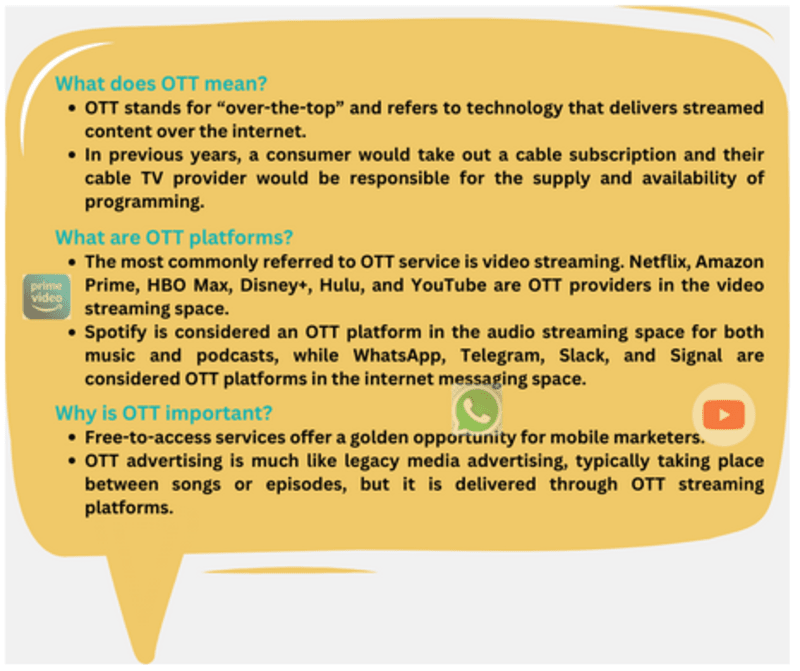Indian internet has an OTT question to settle
“The Internet is becoming the town square for the Global village of Tomorrow.”– Bill Gates
Relevance: GS III (Science and Technology)
- Prelims: Terms and concepts related to Information and Technology;
- Mains: Issues related to Information Technology; Net-neutrality Principles; and Government Initiatives;
Why in the News?
The draft Broadcasting Services (Regulation) Bill, 2023, released for public consultation, seeks to enforce government-mandated programming and advertising rules on broadcasting platforms, including over-the-top (OTT) services.


About the news:
- Net neutrality, or the idea that all data on the internet should be treated the same, is under threat.
- This was a battle that many thought had been won in 2016 when attempts to compromise net neutrality made headlines and were subsequently thwarted after a sustained public outcry.
- Less than a decade later, India's internet's open and equitable nature remains in jeopardy.

Current debate around OTT:
- At the heart of the matter is the desire to regulate over-the-top (OTT) services - those offered directly via the Internet.
- These proposals demanded in the Bill are perhaps concerning, given that the regulator has traditionally advocated for net neutrality. Unsurprisingly, most telecom companies favor such regulation.
- However, regulating OTT services through measures such as network fees and licensing or allowing interception of messages by authorities may have serious implications for both users and India’s digital economy.
What is the current issue over Network fees?
- India’s data consumption has exploded over the past few years. In 2022, it accounted for 21% of global mobile data traffic — up from 2% a decade ago.
- For telecom companies, this is a double-edged sword. Greater usage means greater revenue, leading to “clogged networks”.
- According to the telecom regulator, the companies should pay a “network fee” or “fair share” by large OTT (over-the-top) players since these services generate the bulk of traffic.
- The consequence of this action:
- This will violate net neutrality – by discriminating against data accessed on non-paying OTT services – and hurt users too.
- Companies will pass this burden on to customers by raising subscription fees or even removing free services. In effect, customers will pay their telecom provider for data twice. Such a move will hurt the telcos, too. Fewer internet users would reduce data usage and revenue.
What is the current issue over Licensing?
- There is a debate over whether OTT services or even e-commerce companies should be licensed. Telecom companies argue that as many apps provide calling and texting services, they too should be subject to licensing conditions and pay a fee. The same service should have the same rules, according to the argument.
- However, telecom companies pay a license fee because they utilize and monetize spectrum — a natural resource the government grants them exclusive rights over. Apps, on the other hand, work on the internet, which functions on the underlying networks provided by various entities, including telcos.
- Consequences of this decision:
- Stifle Innovation and Job Growth: The consequences of such a move will be far-reaching. It will force every application that offers a communication feature to be licensed.
- For Example, the Zomato app, lets us communicate with our delivery personnel with a customer service interface.
- These changes would rob the jobs of millions of Indians, businesses, and even the government of the ability to communicate freely over the Internet.
- Demoralize Investments: By forcing entrepreneurs to first seek licenses before beginning digital ventures, a 21st-century License Raj will not only stifle innovation and job creation but also deter investors, both foreign and domestic.
What is the current issue over Interception?
- Non-clarity of the key terms in the Bill: The proposals suggest that the government be allowed to intercept, monitor, or block messages in case of “public emergency” or “in the interest of the public safety”. There is no clear definition for these terms.
- The Consequence of this decision:
- Once end-to-end encryption is broken, it isn’t just the government but also bad actors that have access to these messages. This can even promote more online scams.
- According to estimates, 500,000 Indians fall prey to such scams each year. This would likely increase exponentially under the proposed interception rules.
Conclusion:
While we wait for the government’s view on such legislation, what is clear is the need for greater multi-stakeholder examination of the consequences of this proposal. Telecom companies' proposal has the potential to change the internet as we know it, jeopardizing the significant gains made by India’s digital economy.
Mains PYQ
Q. The aim of Information Technology Agreements (ITAs) is to lower all taxes and tariffs on Information technology products by signatories to zero. What impact would such agreements have on India’s interests? (UPSC 2014)
Q. Impact of digital technology as a reliable source of input for rational decision making is a debatable issue. Critically evaluate with suitable example. (UPSC 2021)

